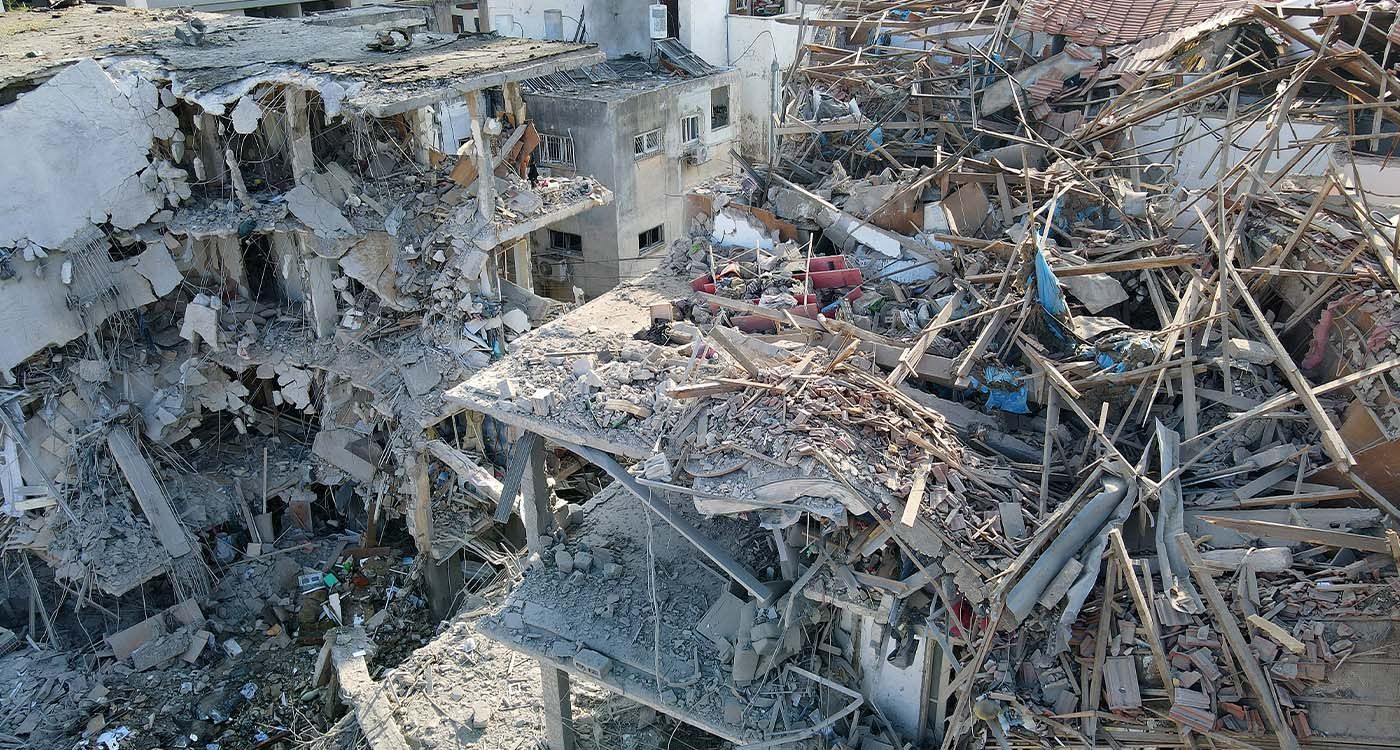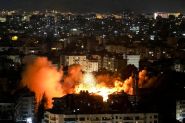- Home
- War in the Middle East
- Strikes, Drones, and Retaliation: Iran's Mullahs Now Fight for Survival, Not Victory

©JACK GUEZ / AFP
Once again, the Middle East has awoken to the metallic taste of war. But this time, it wasn’t merely a warning shot but rather a slap in the face. Israel launched its “Operation Rising Lion” against Iran, targeting nuclear sites, ballistic missile bases, military airports, and even high-ranking figures deep within the regime’s security apparatus. Around twenty top generals are reported killed.
And as if such humiliation weren’t enough, an operation as improbable as it is bold allegedly allowed Mossad to establish a drone-launching base inside... Iran itself. Not near the border but actually inside the country. It is striking like a post-it note stuck to the dictator’s mirror, reminding him just how vulnerable he is.
Iran’s response was swift. A few hundred drones and then missiles were fired en masse toward Israel overnight. On paper, it looked like a massive barrage. In reality? Barely 10% made it through Israel’s defensive curtain.
But that’s not where Tehran’s true counterattack lies. While radars tracked the incoming missiles, Iran pulled another lever: domestic fear. Internet shutdowns. WhatsApp blocked. “Spontaneous” pro-regime rallies with the usual pre-printed placards and choreographed chants. This regime isn’t striking back to defend its pride — it’s scrambling to defend its survival.
Behind the regime’s reinforced yet brittle windows, the truth is clear: the real war is no longer just against an external enemy. It’s the war for survival at home. The Iranian people, weary of nuclear slogans and perpetual sanctions, are beginning to see through the smoke. Each Israeli strike is a stinging reminder: the regime doesn’t protect the nation — it protects itself.
Popular support? A stage show. Patriotism? A straitjacket. The mullahs aren’t trying to answer Israel. They’re trying to silence the question that haunts Tehran’s backstage: What if everything collapses?
What we’re witnessing is a double unraveling. Israel strikes to prove no site is out of reach — neither nuclear nor symbolic. Iran retaliates with a theatrical show of force, while locking down its streets and cyberspace. The message is but so clear: this regime is no longer capable of decisive military retaliation — but it remains ruthless in the art of repression.
So, are they falling? Not yet. But they’re staggering. And the more they stagger, the harder they hit — inward.
It’s likely the situation will worsen in the coming weeks.
What lies ahead may resemble a spiral: the more Israel targets critical points, the more the Iranian regime will retreat behind its own people like a fortress. But use your people as a human shield long enough, and one day, you might get stabbed in the back — not by missiles, but by the street, by exhaustion, by the sigh of a nation tired of being the alibi for a regime that now believes only in its own survival.
Will they fall? Not yet. But today, Iran is no longer defending a revolution — it’s defending a power monopoly, a privileged twilight, a collapsing theatre whose curtains have already begun to catch fire.
Read more




Comments